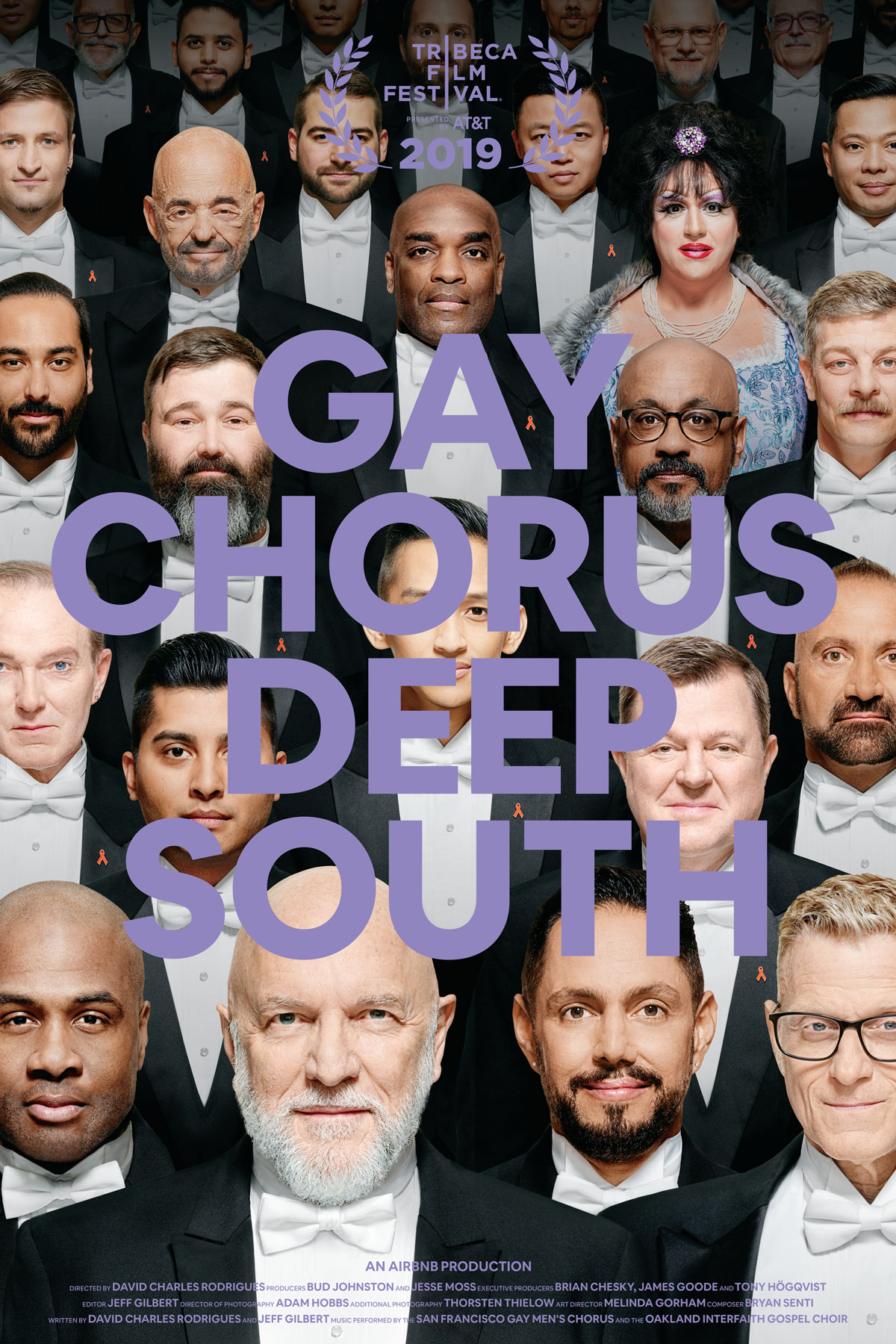Gay Chorus Deep South
Synopsis
Gay rights activists have made tremendous strides in nudging state legislators and voters toward more progressive stances on issues that impact the lives of millions of Americans. However, throughout the Bible Belt region, where there is strong opposition to same-sex marriage, members of the LGBTQ community continue to fight against laws that essentially license discrimination (for instance, a bill in Mississippi, under the guise of religious freedom, allows businesses to turn away potential customers based on their gender identity or sexual orientation). As the son of a Southern Baptist pastor from Texas, Tim Seelig, who today is the conductor of the San Francisco Gay Men’s Chorus, knows from experience how difficult it can be to replace misguided hatred with compassion and understanding; especially now, when the ideological rift between the U.S.’s two major political parties appears to be widening and right-wing leaders and other elected officials promote intolerance while reversing the progress made under earlier presidential administrations. He along with 300 other singers (from his own choral group as well as the Oakland Interfaith Gospel Choir) take their message of love on tour, to churches and concert halls in the Deep South — an ultimately cathartic opportunity for personal healing that brings many of them face-to-face with long-estranged family members whose hearts are slowly opening to the idea of having a gay son. Directed by David Charles Rodrigues, Gay Chorus Deep South follows Seelig and his gospel-singing cohort on their week-long journey, in the process revealing how efforts to build unity might be regarded as condescending or paternalistic by those on the receiving end of such goodwill gestures; especially individuals, such as queer historian John Burford, who do not fit the stereotype of bigotry so central to the cultural imaginary of Southerners as rural, homophobic racists. Although brief, Burford’s conversation with Seelig, like the spiritually uplifting choral performances that pepper this film (and which are attended by socially conservative as well as liberal audiences, from Alabama to the Carolinas), complicates the sometimes-simplistic depictions of the Deep South found in more mainstream narratives. These scenes also offer an alternative view of fellowship, wherein the traditional teachings of organized religion — including the Biblical exhortation to “love thy neighbor as thyself” — might serve as vital reminders of our shared humanity.
By David Scott Diffrient

Filmmakers
David Charles Rodrigues
USA
2019
92 min